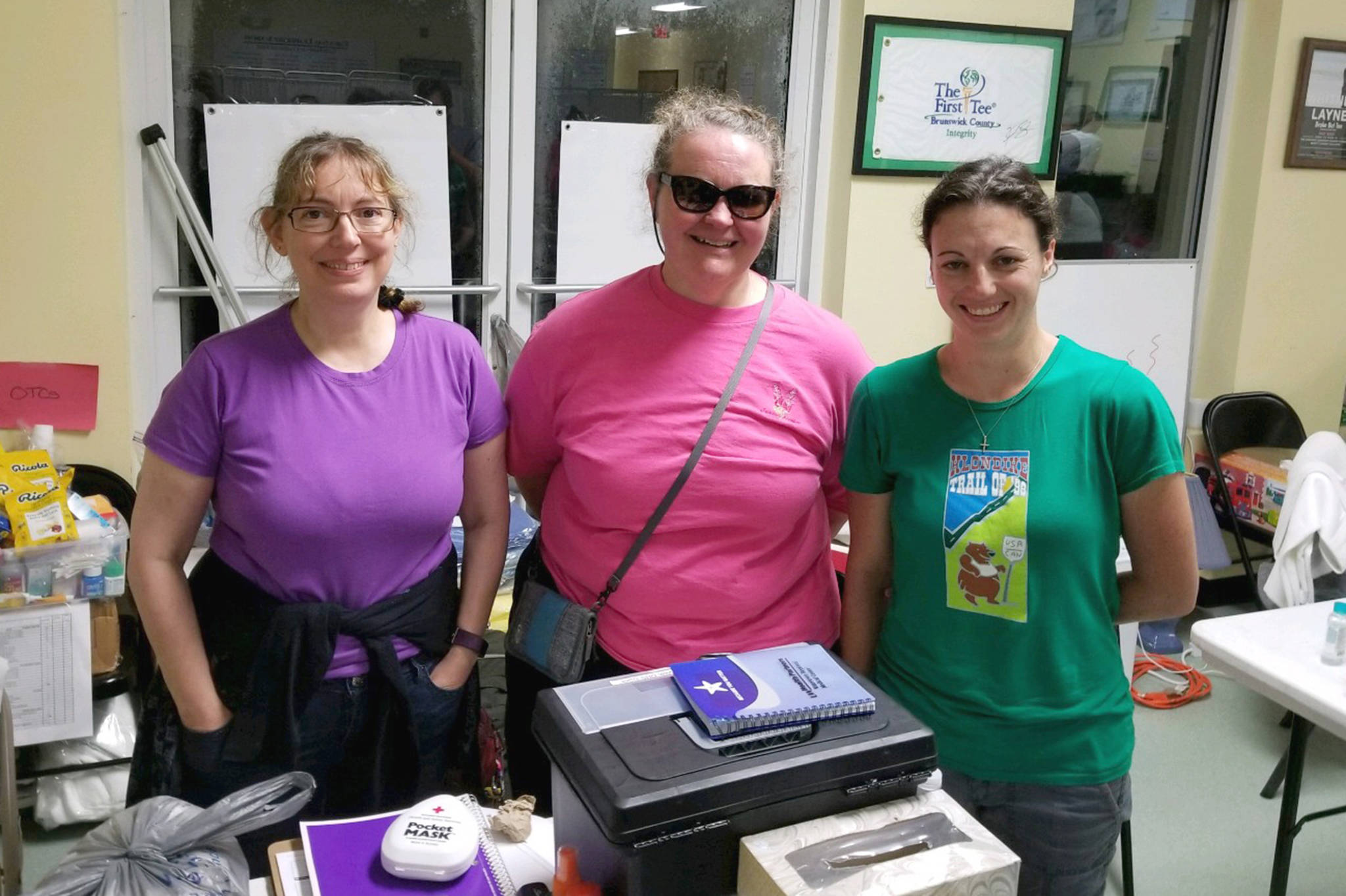In the aftermath of Hurricane Florence, a man in a shelter looked at his once-functional wheelchair from bed.
The wheelchair had been flooded during the storm, and it no longer worked. He was trapped in the bed at the shelter.
That’s where Juneau nurses Peggy Sue Wright and April Rezendes come in.
Both women are public health nurses, and both were sent down to Brunswick County, North Carolina the week of Sept. 17 to assist in the wake of the hurricane. They, along with Vicki Craddick from Fairbanks, are helping connect people in shelters with services and helping them find their next steps.
“As each of those shelters consolidated, people who are left in the shelter are the hardest to place, and have the highest needs, and probably were extremely high-need to begin with,” Wright said.
The man in the wheelchair stands out to Wright as an example of someone who was having trouble getting around before the hurricane only to have the hurricane make it much more difficult.
The three Alaska nurses are there through the Emergency Management Assistance Compact (EMAC), an agreement between states that allows them to share resources in cases of natural disasters or man-made disasters such as terrorism.
Rezendes, who preferred to let Wright do the talking for them both, works at the public health clinic in Juneau. Wright works at the public health state office in downtown Juneau. They have experience running, leading and evaluating disaster drills in Alaska, Wright said.
Wright said the three of them knew each other previously, and their faces aren’t the only familiar sights in North Carolina.
“Mosquitoes down here, I think we brought them from Alaska,” Wright said, laughing. “They’re huge.”
This isn’t the first time Wright has been out in the field. In 2005, she was sent to Mississippi to provide medical service for victims after Hurricane Katrina. In that case, she said, she was much more hands-on on the medical side. She would help treat people who had suffered injuries after the hurricane, giving the example of someone who cut himself while removing fallen trees from his yard.
The assignment in North Carolina is much different, she said.
“What we’re doing is a lot more than medical for the long-term folks, the folks that are highly dependent on the systems to begin with because they have functional needs,” Wright said. “They’re already walker users, they’re already in the wheelchair, they’re already taking insulin, they’re already on dialysis, that kind of stuff. It’s more case management.”
At least 48 people are believed to have died as a result of Hurricane Florence, the Weather Channel reported Friday.
The Alaska nurses are scheduled to fly back this coming Thursday, Wright said. When they return, Wright said, they hope to bring wisdom and ideas with them.
“In a lot of ways, this deployment is about bringing stuff back to Alaska and learning lessons from other places,” Wright said. “Our disasters don’t come at us annually (like hurricanes). … If we could learn before we get the next big one, that would be a good thing.”
• Contact reporter Alex McCarthy at 523-2271 or amccarthy@juneauempire.com. Follow him on Twitter at @akmccarthy.

